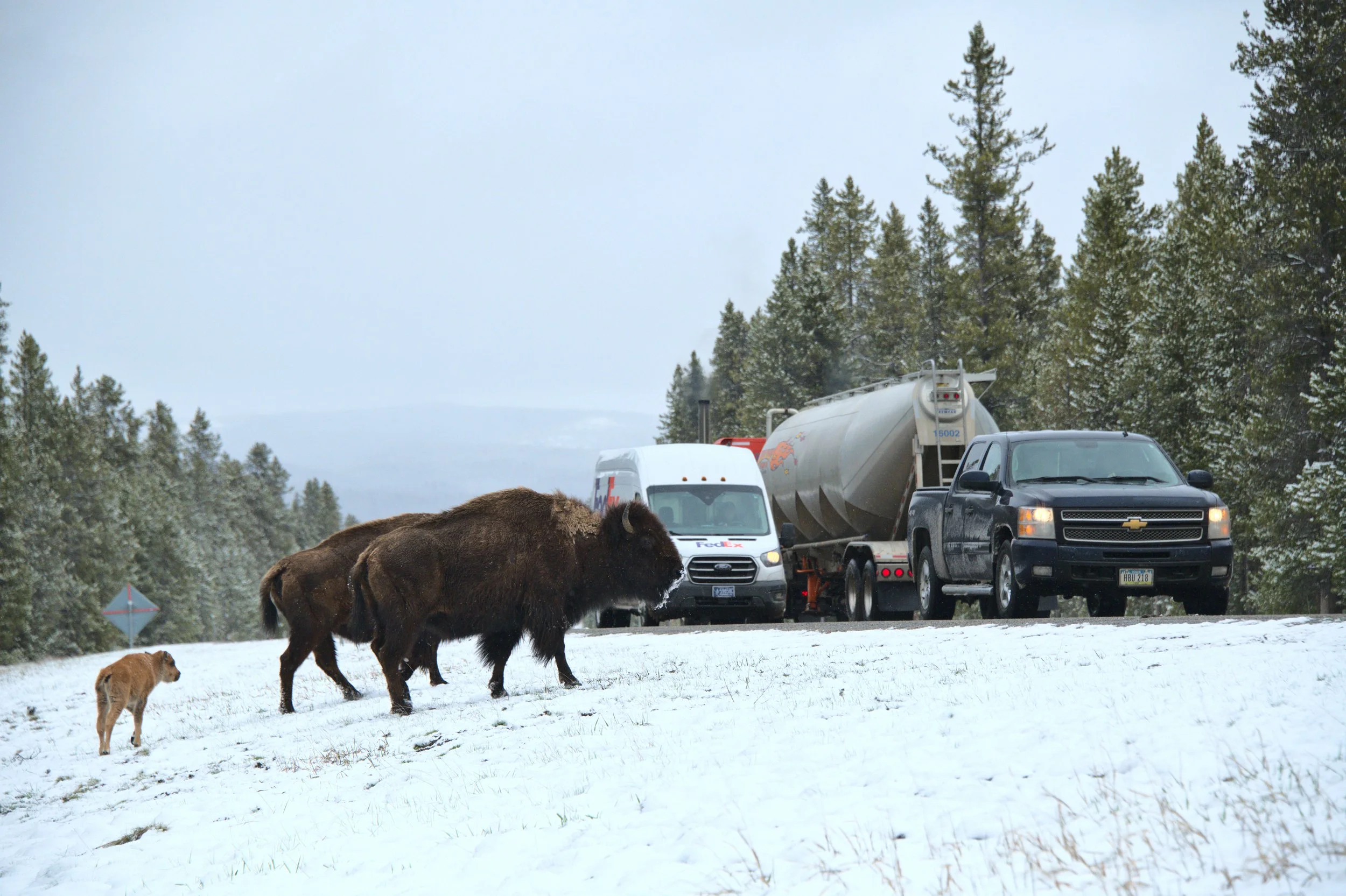
Research
Making scientific research accessible
Here, you’ll find easy-to-read summaries of scientifically rigorous, evidence-based and peer-reviewed publications from around the world to help you better plan, build, and manage ecologically sustainable linear infrastructure.
Research summaries are listed chronologically according to when they were published here.
To find information on a specific topic, please use the SEARCH function below to filter by keywords, including topic, species, location and/or author.
Where bison meet traffic: Understanding migratory movements of bison along roadways and hotspots for Yellowstone wildlife activity
A single large truck killed 13 bison on US Highway 191 in 2023, yet the Greater Yellowstone Ecosystem still lacks any wildlife crossing infrastructure despite decades of mounting collisions. New research has shown where existing highway bridges could be adapted into wildlife corridors, transforming the deadliest stretches of road into safe passages for migrating bison, grizzly bears, and other iconic species.
Establishing wildlife corridors is a key conservation tool in many landscapes
A recent publication claimed that increasing stewardship to ensure landscape permeability is a better approach to achieving conservation outcomes than protecting corridors between protected areas. We argue that the optimal approach depends on the landscape context, conservation goals, and species involved.
Barriers to fauna-sensitive road design and how we can overcome them
Our recent survey of the transport planning and policy literature revealed substantial barriers that obstruct the consideration and implementation of fauna-sensitive road design (FSRD). Although the review identified several ecological support tools that could be useful to transport practitioners, these are of limited use without ‘action-oriented’ research to support their adoption and application of FSRD more broadly.
A cost-effective approach to incorporate landscape connectivity in Environmental Impact Assessments
We present a simple framework for a landscape level approach to identify species road crossing needs and priority sites for implementation. Our approach permits pro-active, scenario-based planning for wildlife friendlier roads that can easily be incorporated into EIAs.
Filling knowledge gaps at the landscape level in planning roadkill mitigation measures may offer optimal cost-efficiency solutions for multiple species and taxa
A dramatic global rise in wildlife mortality due to vehicle collision has boosted a wide interest across disciplines to mitigate this impact through the installation of structures such as overpasses, underpasses, fences, etc. These structures can restore connectivity and improve population viability, even though research has found that some structures need to increase their effectiveness. So, it is more important than ever for optimal planning initiatives to be more precise, resilient, and adaptable enough to work for a wide range of species and taxa.







